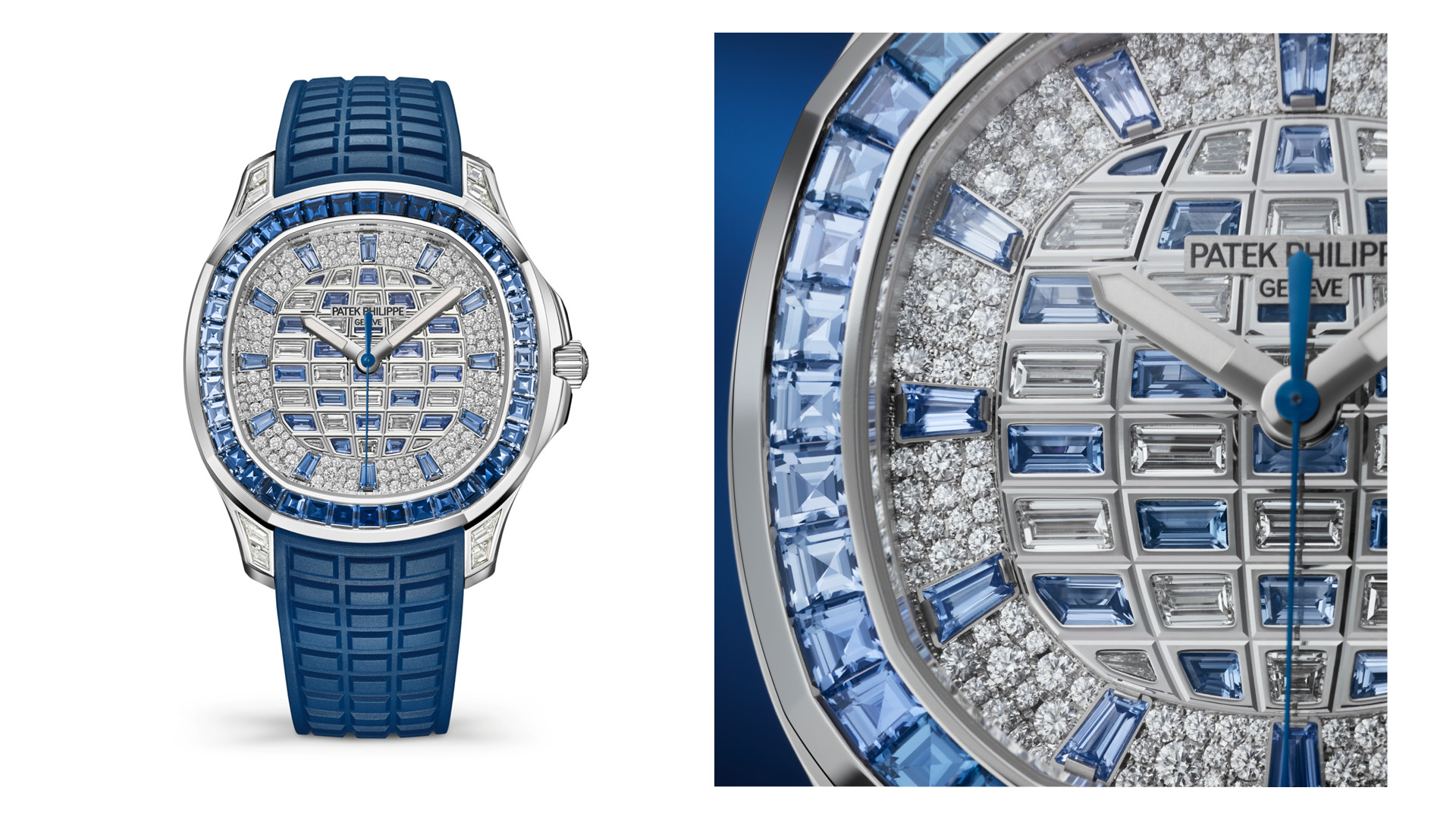
When watch houses reinvent their iconic designs in jewelled form, the results can be sublime, joyous, and downright outrageous. We single out five classic watch designs that have been given a precious spin for 2024.
Jewelled watches for 2024
Audemars Piguet Royal Oak
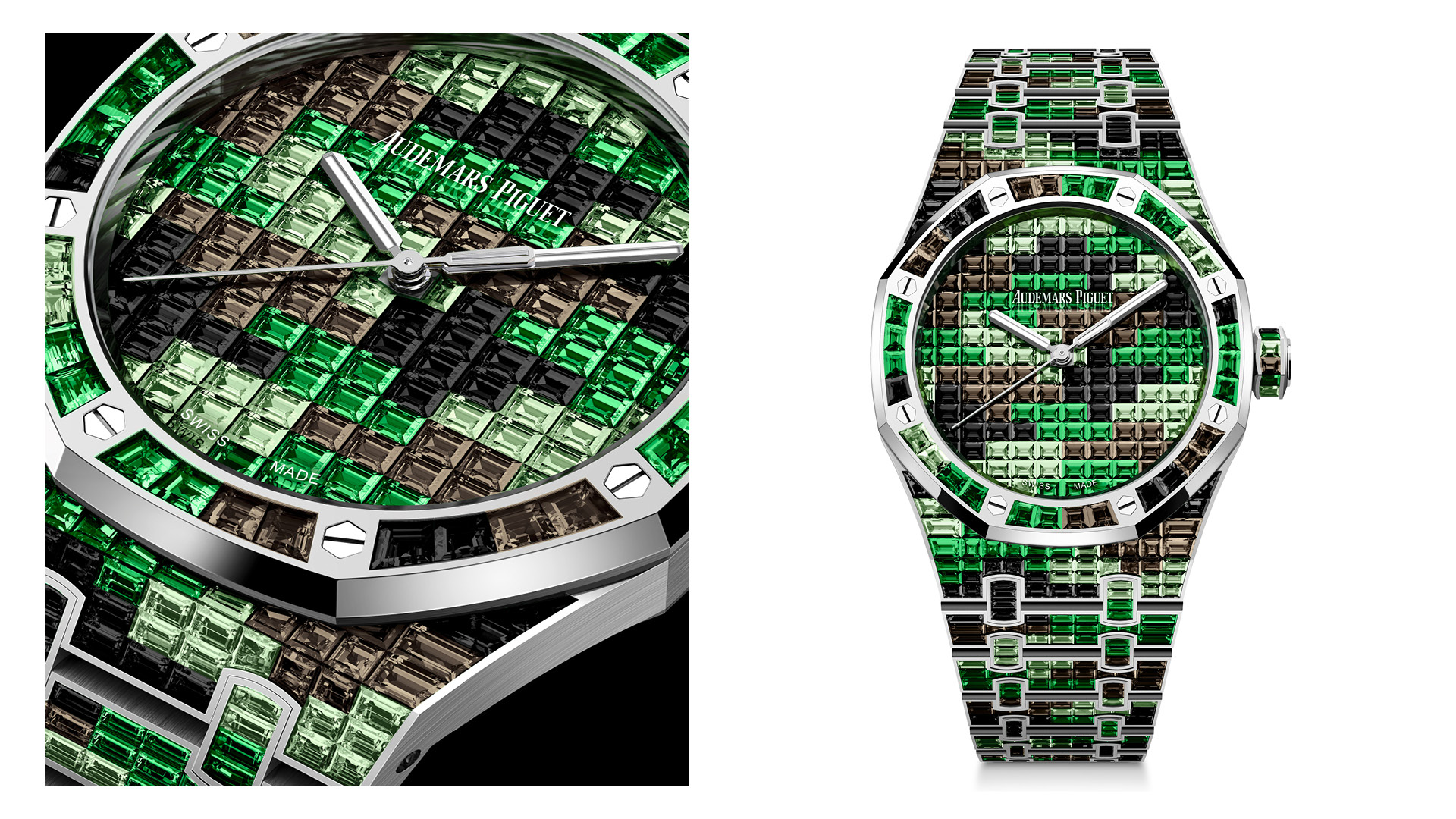
Its reputation was forged in pure, gleaming steel, yet the Royal Oak’s super-clean lines take surprisingly well to a gem-set guise. But then, as one of the original super-thin mechanisms, this superstar watch – it was the first design to use steel like precious metal – has a naturally slender profile, allowing for the added volume that precious-stone setting dictates. Audemars Piguet has been involved in the business of jewelled timepieces since the late 19th century, when it provided mechanisms for houses such as Cartier and Tiffany & Co. Having established an in-house jewellery studio in 1980, it has developed a jewelled-watch style all its own. This year’s Royal Oak automatic variation is a fine example: a combination of 861 baguette-cut black sapphires, intense and light tsavorites and smoky quartz combine to create a moody camouflage effect.
Bulgari Octo Roma
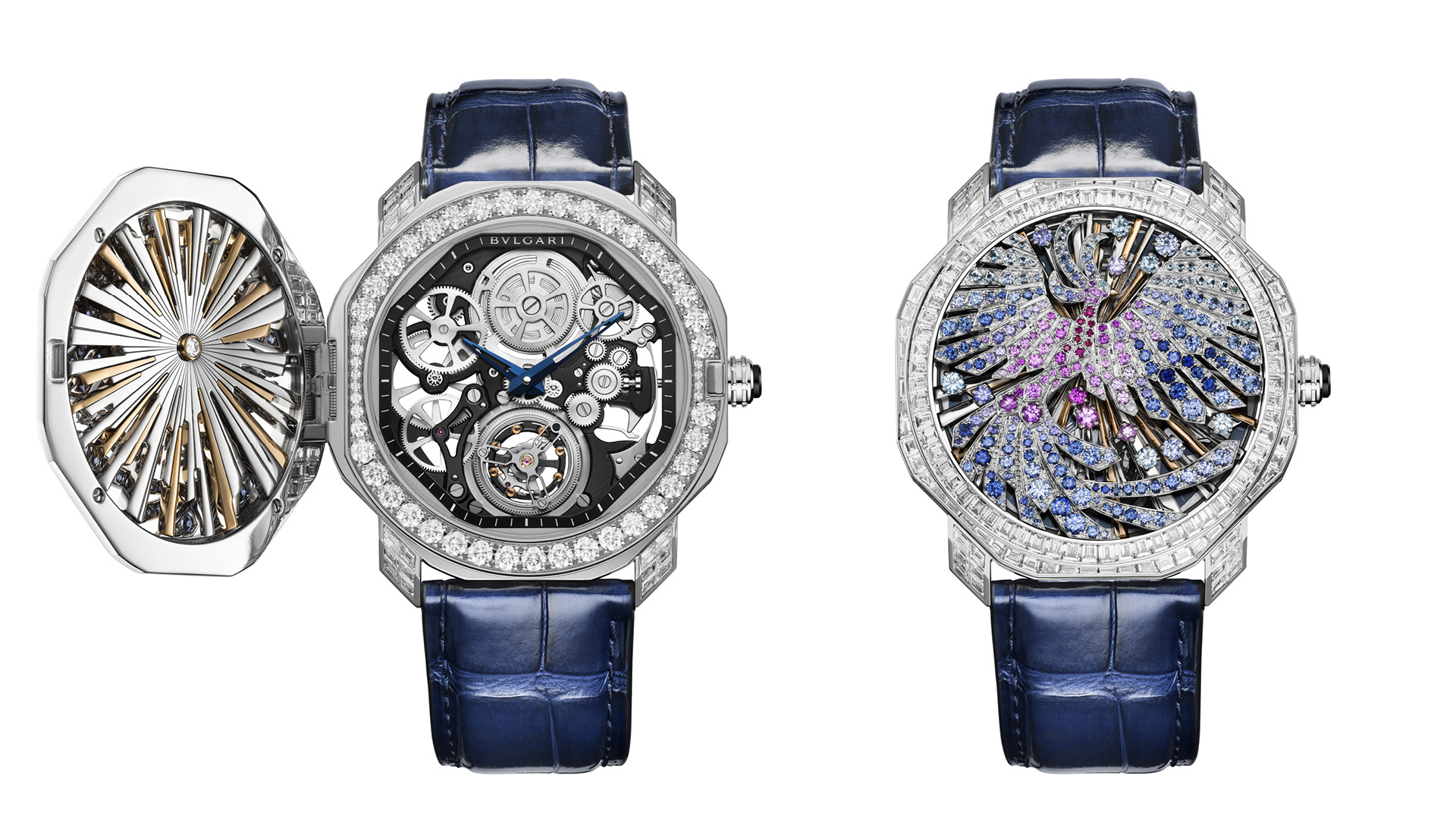
Secret watches, timepieces with a jewelled dial cap and so designed to look like a bracelet, were originally created for women in the 1920s, who, keen to keep a social diary on track, might discreetly consult their watch without insulting their host. Today, watch brands increasingly use them as a form of storytelling, with fantastical narratives all the better to display in-house jewellery design and setting skills. And, when it comes to crafting fables around the intricate technological skills that jewelled watches require, Bulgari is a master. This year’s high jewellery Fenice Octo Roma Secret Watch is made possible by the impossibly thin BVL 268SK Octo Roma movement, allowing for an intricate mechanical skeletonised dial and the decorative tapestry of a cover with Phoenix rising up across the sizeable 44mm dial in a precious sweep of blue, pink and purple gemstones, sapphires, aquamarines, rubies, amethysts and a tourmaline Paraiba among them.
Patek Philippe Aquanaut Luce

While the 1976 Nautilus design is currently Patek Philippe’s most sought-after sports-luxe design, the Aquanaut, a more casual variation launched 20 years later, in 1996, gets my vote. Probably because its streamlined profile and casual rubber bracelet, reflecting the checkerboard pattern of the dial, is less boardroom CEO and more St Tropez weekender. This year’s high-jewellery model boosts the gem factor with a beautifully considered combination of two setting techniques: rectangular baguettes and snow-setting, where variously sized smaller brilliant-cut white diamonds are tightly clustered into a glinting surface. Here, their addition softens the stark lines of the 72 baguette-cut blue sapphires and 38 baguette-cut diamonds, creating a rich jewel for the wrist and a glamorous promise of surf-bound, summer pursuits.
Piaget Polo
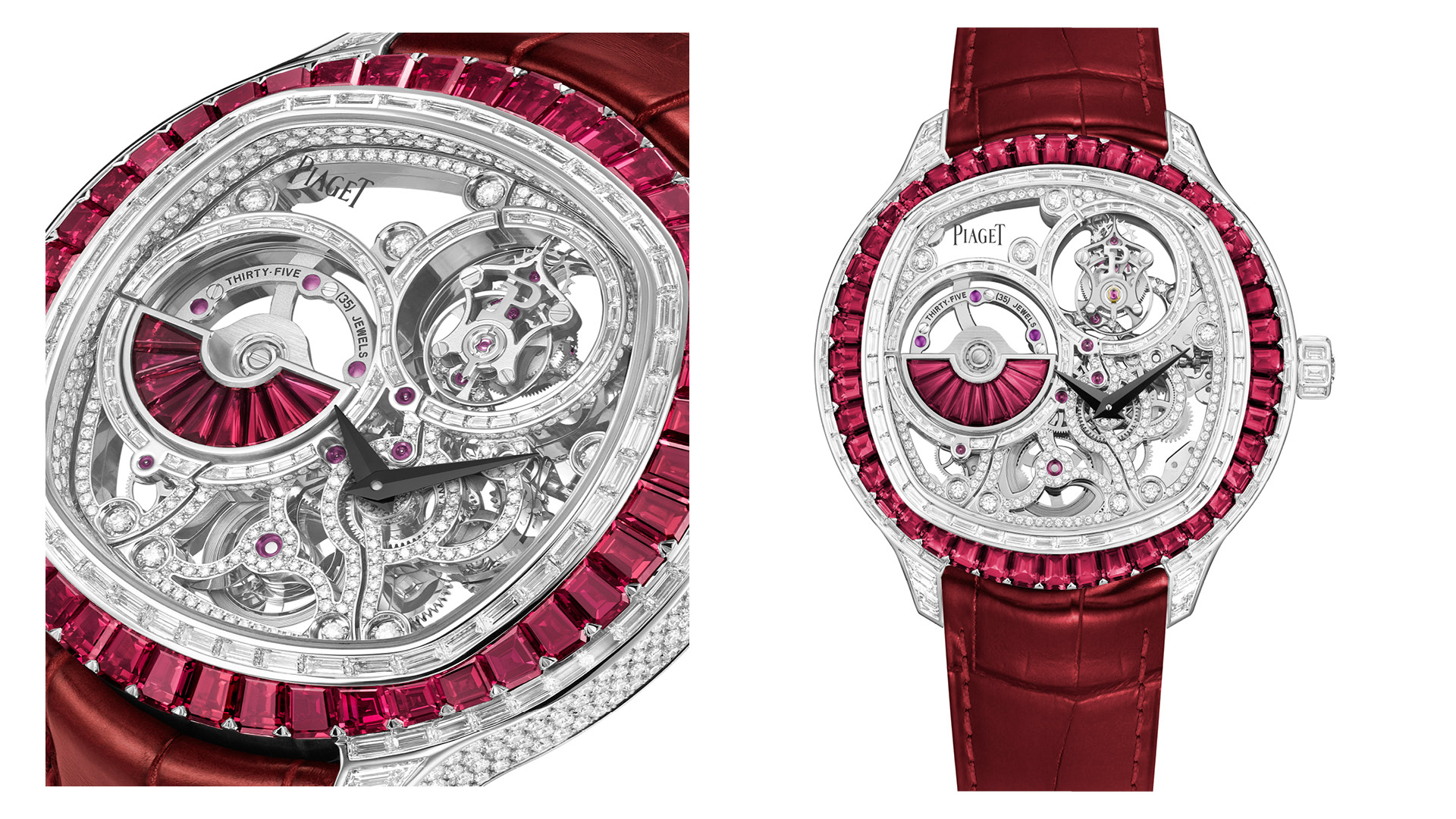
The watchmaker-jeweller is celebrating its 150th birthday this year, and the star of the party is the Piaget Polo designed by Yves Piaget in 1979. Yves was a dedicated art lover who counted Andy Warhol as a friend, and there’s something of a Howard Hodgkin influence in his original watch design, where the watch case, bracelet and sleek gadroon decoration were fully integrated in a sublimely pure combination of the jeweller’s and watchmaker's crafts. The Polo was ‘carved, link by link from a single block of 18ct gold’, according to an ad campaign at the time and is, you might argue, the original sports-luxe watch. In the intervening 45 years, it has been redesigned almost beyond recognition, but some elements remain, including its super-skinny form, which lends itself to this celebratory deep-red ruby iteration with baguette-cut rubies and diamonds. The skeleton dial is also a recurring Piaget motif. However, at a whopping 49mm wide, this version of the Piaget Polo is out of bounds for slender wrists.
Rolex Daytona
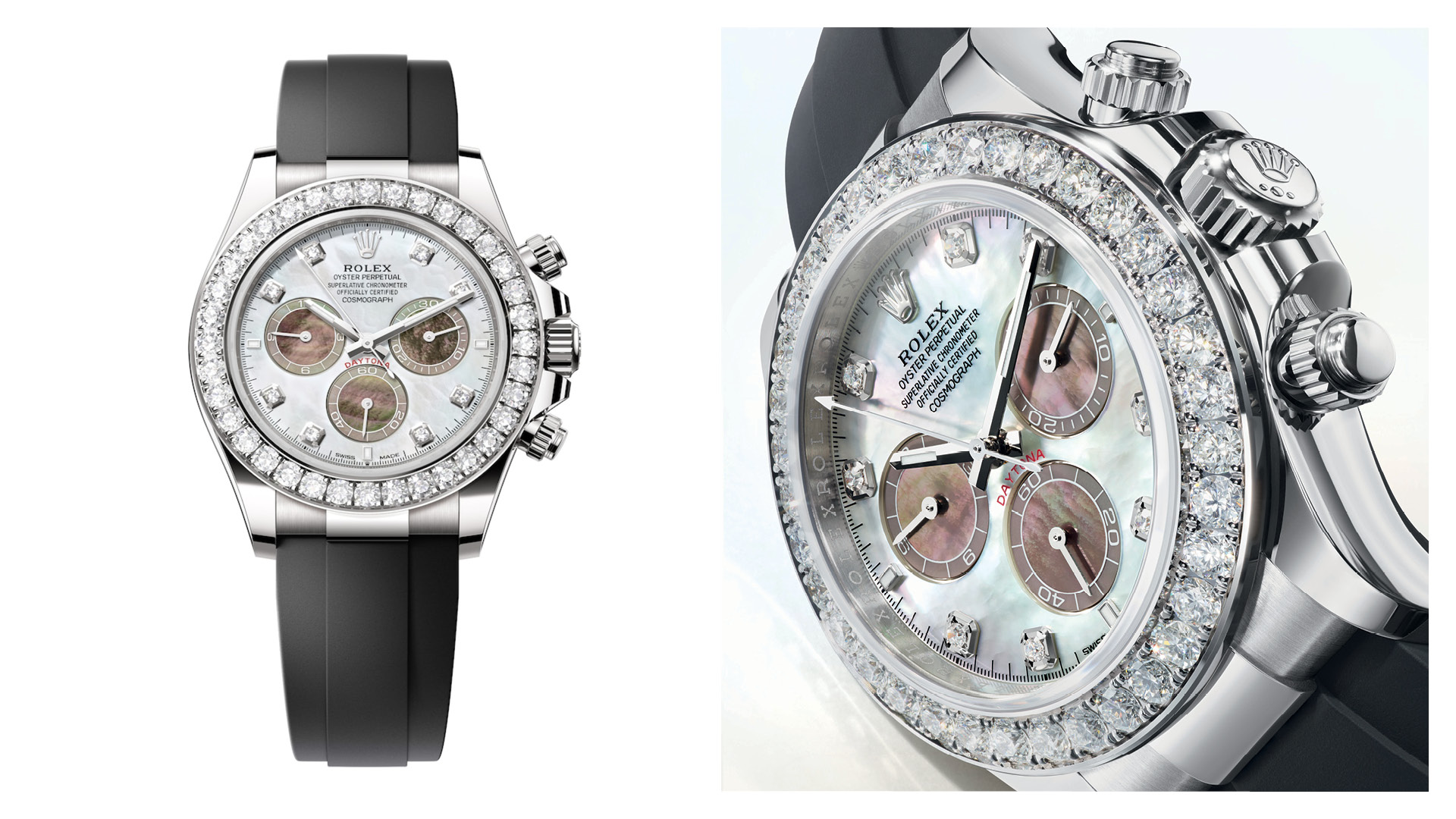
Two new, jewelled versions of Rolex’s 1963 Oyster Perpetual Cosmograph Daytona are launched this year, each incorporating mother-of-pearl dials and markers in sheeny white and black varieties, which has brownish, ombré tones in this case. The luminous coating found in oyster shells and others has long been a favourite dial material for watch houses, because it can be cut into super-thin sheets, and profile volume is a prime consideration in watch design. Rolex has been using mother-of-pearl across its collections for years. Both Daytona pieces have white-gold cases, and the first features the slick, black Oysterflex bracelet with white mother-of-pearl dial and chrono subdials in black. The metal bracelet edition, however, sees the details reversed, with a black mother-of-pearl dial and white mother-of-pearl counters. Thirty-six brilliant-cut diamonds circle each dial, while the chunky brilliant-cut diamond dial markers add a sporty frisson.







